#Like- fully haunted and extremely scary to an outsider's point of view
Explore tagged Tumblr posts
Text
DC x DP Prompt/Idea
Amity Park has always been haunted; everyone knows this but didn't care as long as it didn't disturb their lives. However, they didn't realize that they made up a third of the beings haunting it.
From the moving trees to the animals with blackholes for pupils. Amitians didn't care if the clouds moved and made themselves into shapes in a way that didn't seem natural, or that the streets always looked so odd or changed as they walked about.
They ignored the mushroom rings at the park, it's not like their dogs were interested in them and joggers tend to stick to the sidewalks. They ignored the people who looked familiar but just a bit off, like their too long arms, their claw or talon-like nails, the lack of facial features, their sharp teeth, and too wide smiles.
The humming and singing at night, the dancing ladies around town, the fog that had a figure just behind it- It wasn't their problem.
Until Wes moved into town and almost Immediately got out and called the Justice League.
At least he waited for Phantom to get to the point of burning out?
#danny phantom#dc x dp#dp x dc#dpxdc#justice league#prompt?#story ideas#fic ideas#wes weston#Wes thought of Danny as the lesser of 2 evils#But when Danny looked like he was close enough to keel over and die fully Wes decided that enough was enough#is he a hero's family member?#is he a main contact because of his family's curse?#Maybe he knows JLD a little too much or just found out everyone's identities and kept their personal numbers around#idk I just wanted a haunted Amity#Like- fully haunted and extremely scary to an outsider's point of view#maybe Amity is part of the dead-adjacent community and was always under the GIW's or some paranormal gov's watch#but nice gov au#i want them to be nice for once#competent#supportive of a vigilante/hero#anyway this is yet another thing that just randomly popped into my mind
423 notes
·
View notes
Photo
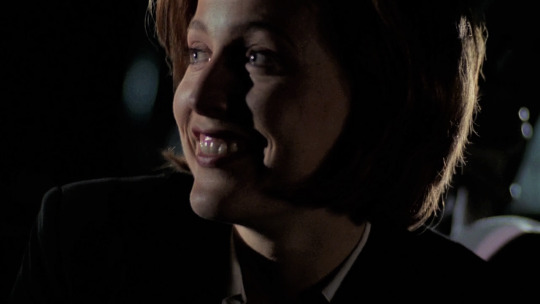
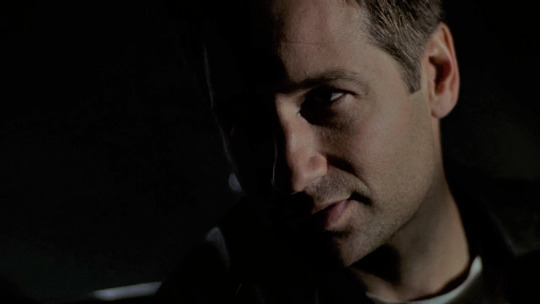
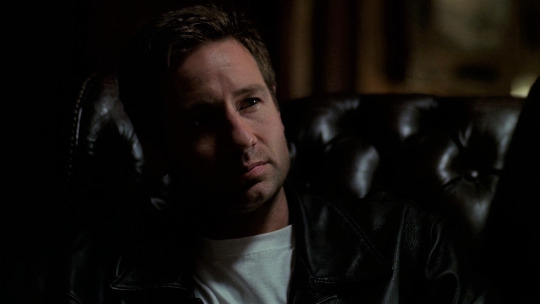
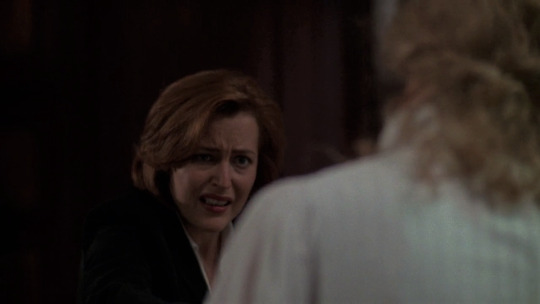
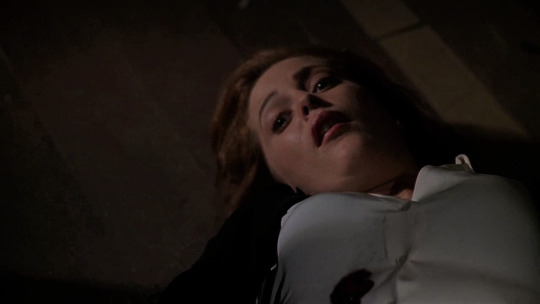
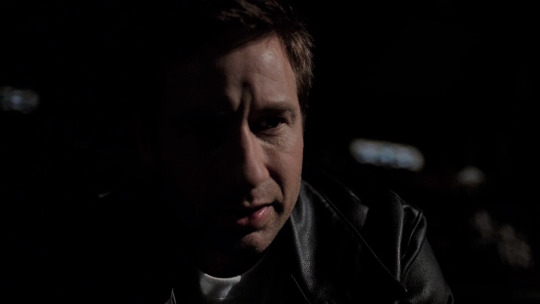
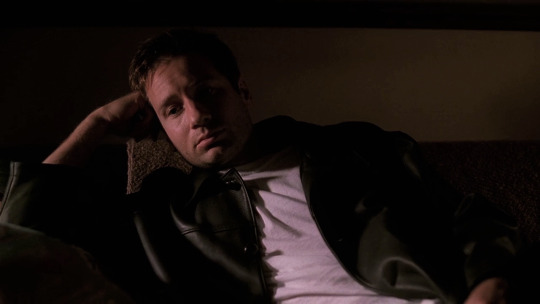
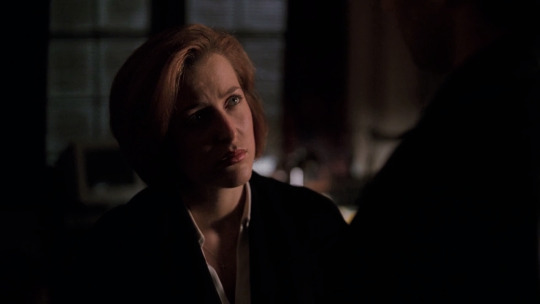
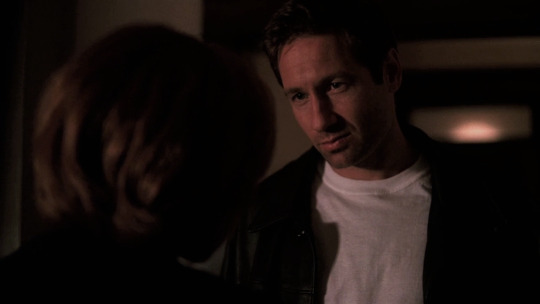
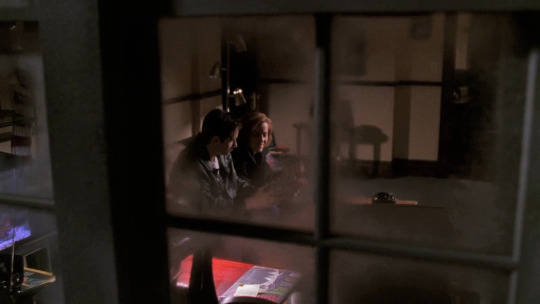
6x06. “How the Ghosts Stole Christmas” - X-Files Rewatch
I wrote a lot about this episode, I hope you enjoy! Really thought this one gave us a ton of insight into M&S.
Mulder’s excuse to invite Scully out with him - a haunted house. He just wants to spend time with her. He’s feeling lonely. For some reason he’s not spending Christmas with anyone - not his mom, not the Gunmen. Even if he was, she’s the person he most wants to spend it with.
Mulder does his very best to entertain Scully with a ghost story. He’s being very seductive, but I don’t think he’s too serious about it - just wants her to spend time with him desperately.
When Mulder describes Maurice (“brooding but heroic”) and Lyda (“a sublime beauty with a light that seemed to follow her wherever she went”) - I mean, c’mon, he’s describing THEM.
“Driven by a tragic fear of separation they forged a lovers' pact so that they might spend eternity together and not spend one precious Christmas apart.”
HELLO?!
Even though Scully has somewhere to be, Mulder’s pull on her is irresistible. She has a family, a gift-opening, many traditions that she loves to take part in, SOMEWHERE ELSE TO BE, but she comes to see Mulder anyway. She protests, tries to leave, but only because she thinks Mulder also has plans, has people to spend the holidays with. Scully loves a good story, and this one hits close to home - scary, romantic and tragic.
Scully’s long monologue about why fearing ghosts is irrational, what it represents. She’s thought about it a LOT. She enjoys the thrill she gets from fear but also enjoys being able to explain it, put it in a box, conquer it.
It appears on the outside that Mulder is being selfish on inviting her here, occupying her time on a date where she has places to be, that he’s being insensitive. But the opposite is actually true. How difficult is Christmas going to be for Scully this year? To be around her family and remember her loss. To spend time with her nephew and having to hide her sorrow at the child she barely knew that was taken from her. To be expected to be full of Christmas cheer when all she wants to do is hide from the world, to yell and cry with anger and sadness. Mulder knows this, but doesn’t acknowledge it. He distracts her with ghosts, and it is the most wonderful thing he could do.
I love the contrast between Mulder and Scully meeting the ghosts, on experiencing the scary haunted house. Mulder is fascinated, while Scully is terrified. An incredible parallel to their experiences with the paranormal - Mulder just wants to know more but Scully rationalizes it to try to dispel her fears.
“Alright, I’m afraid. But it’s an irrational fear.” - Scully (Her first of three admissions this episode.)
This is a wonderful season to explore Scully’s fears. She is terrified of the unknown, of what she can’t explain rationally, which drives her stubbornness all throughout the next few seasons. It’s frustrating for Mulder, he doesn’t understand why she’s so resistant to believe even if she’s seen things she can’t deny, but it all stems from this fear. She doesn’t fully overcome it until much, much later (“all things”, I believe).
Mulder’s “I got your back” when Scully’s about to check out something strange/scary. Hilarious, and a simple attempt at humour. An attempt to show that Scully is the braver one. He might be less scared, but he pushes her, wants her to explore, and while Scully is afraid SHE is the one to open the door because HE pushes her to do so, because she needs to explain things to conquer her fear. She likes that about him, about their relationship. He gives her strength and courage to overcome her fears.
Scully gets into the next room, is comforted by evidence of the mundane. The wound clock, the fire that just went out. This place isn’t haunted, it’s just occupied.
Mulder is such a goofball. Enjoying pranking/scaring Scully, teasing her. He touches her shoulder. He calls her on her fears - that “Rationally, you've been in much more dangerous situations”. In a horror movie, Mulder would be the one doing all the things that YOU SHOULD NOT DO. Scully realizes this, haha.
Scully’s hand on his arm when they realize that the corpses are themselves. It’s meant to scare them, to make them believe something will happen to them. So the things that come later will be more believable and they’ll be more susceptible to Maurice and Lyda’s manipulations.
The psychoanalysis of Mulder and Scully.
A lot of these insights are accurate, but some of them reflect only what they FEAR is the truth.
Maurice → Mulder
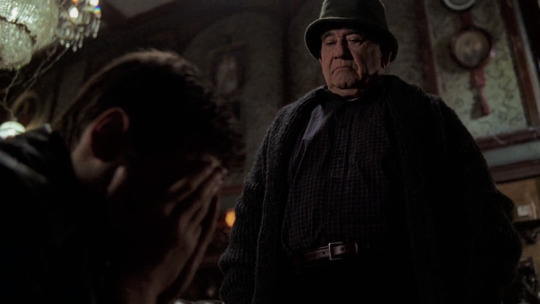
I’m just going to comment here that Mulder is wearing my favourite outfit. Leather jacket, t-shirt and jeans. Hnnnnnnnnng.
“Are you overcome by the impulse to make everyone believe you?”
The one person he wants to believe him the most is extremely resistant to it. She says she believes him, but she can’t quite admit it to herself. This hurts him.
“Narcissistic, overzealous, self-righteous egomaniac.”
Overzealous, yes, and perhaps self-righteous but I don’t agree with the others. Mulder would be WORRIED about the other things though. That he is too self-centered, that his personal quest has taken so much from Scully. He views himself as selfish, and undeserving of love and companionship because of it.
“You kindly think of yourself as single-minded but you're prone to obsessive compulsiveness workaholism, antisocialism... Fertile fields for the descent into total wacko breakdown.”
Single-minded: YES
Obsessive: YES; compulsive to the extent that he is impulsive and spontaneous when it comes to his quest, but not OCD
Workaholism: YES - Mulder doesn’t ever NOT work, as long as it’s associated with his obsession. He’s always at the bureau, or working at home, or dragging Scully to investigate mysterious things on the weekend.
Antisocialism: YES - He doesn’t care what other people think, doesn’t have much of a social life outside of his carefully chosen friends
Total wacko breakdown: he jokes about his mental stability, that he belongs in a mental institution, that they’d lock him up if he went there, that Scully could see him tied down on a bed. But in reality he is very stable emotionally - with all of the trauma he encounters he is very resilient, bounces back, pursues his quest
“You probably consider yourself passionate, serious, misunderstood. Am I right?”
YES. He doesn’t mind that people don’t get him, because he knows he’s on the right path. His joking and humour only covers up his vulnerability, otherwise he is very serious about most things.
“Most people would rather stick their fingers in a wall socket than spend a minute with you.”
OOF. This hurts him, hits home, gets right down to the core of his greatest fear, of being alone.
He brings up Scully, that he’s not actually alone. He didn’t take her car keys, but the ONLY REASON SHE’S IN THE HOUSE IS BECAUSE THEY WERE TAKEN.
And where is she? “BEHIND A BRICK WALL.” One of their own construction - mainly Mulder’s.
“You know why you do it-- listen endlessly to her droning rationalizations. 'Cause you're afraid. Afraid of the loneliness. Am I right?”
This is why Mulder, after his frustration in “The Beginning”, is more accepting of her disbelief. He makes very good points about why she can’t believe in that episode, but he doesn’t really push her on it afterwards - because the alternative is loneliness. (He DOES know that the debate is necessary for their process, but also that her denials are unreasonable at this point, after what they saw.)
If he pushes her too much, will she leave?
Lyda → Scully
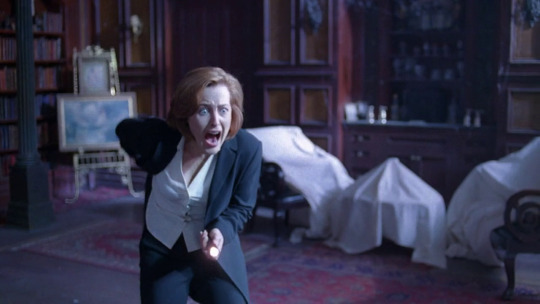
Her hand shaking when holding her gun is just perfection. I love how she calms, her hand steadies, but then starts trembling again when Lyda starts making strange insights, knows things she shouldn’t.
“You must have an awful small life. Spending your Christmas Eve with him... Running around chasing things you don't even believe in.”
Again, Scully wants more out of life. She wants to “get out of the car”, wants to experience family, intimacy, have a partner to share her life with. That Mulder seems incompatible with those things, that he could never settle down and stop chasing things in the dark.
“I can see it in your face... The fear... The conflicted yearnings... A subconscious desire to find fulfillment through another. Intimacy through co-dependency.”
Feeling that she can’t obtain intimacy with Mulder, she finds satisfaction just being with him, working with him, being NEEDED.
“Maybe you repress the truth about why you're really here pretending it's out of duty or loyalty-- unable to admit your dirty little secret. Your only joy in life is proving him wrong.”
This isn’t true, she loves working with Mulder, and believes her rationalizations only serve to build him up (they do). Recent tension between them would make her fear that Mulder thinks this way - that she has no purpose in their quest. Her unwillingness to believe, that it’s only about wanting to be right, will only serve to drive him away.
I love that Scully faints from fear at seeing the holes in Lyda’s stomach and Maurice’s head. When confronted with something SO UNBELIEVABLE, something that cannot be denied or rationalized or put in a box she just shuts down.
Lyda → Mulder
“I was young and beautiful once, just like your partner.” Any acknowledgement of Scully’s beauty just makes me 😍
“Maybe you two should have discussed your real feelings before you came out here.”
Heck, yeah! But Mulder can’t let himself. Even if he knew Scully felt the same about him, he doesn’t deserve to be loved by her.
Comparing Mulder’s reaction to seeing the hole in Lyda’s stomach to Scully’s. He’s disgusted because he accepts it as reality as a matter of course, while Scully is (literally) scared out of her mind.
When Lyda suggests Scully would shoot herself, Mulder’s “I wouldn’t let her”. 😍
“We're not lovers.” - Mulder, said with a sigh “And this isn't a pure science. But you're both so attractive and there'll be a lot of time to work that out.” - Lyda
Ummmmmmmmmm… can we have ghost-Mulder and Scully AU fanfic please?
Maurice → Scully
Mulder as “dark and lonely” - suggesting that he took the car keys to keep her with him. The little nuggets of truth that Maurice and Lyda offer to Mulder and Scully make it easier to accept the other things - the fears that they have about each other.
He’s got no one this Christmas, and she had no idea. 😥
Maurice and Lyda trick Mulder and Scully
When she sees “Mulder”, she’s so relieved and happy.
When “Mulder” rants about loneliness. Scully doesn’t believe in it. She thinks they can change, that they can choose to not be lonely. (This comes up again in “Milagro”. A VERY SIGNIFICANT EPISODE. Hnnng.)
“You’re scaring me.” - Scully (2)
Scully’s face when he’s about to shoot himself. 😥

Mulder finding “Scully” 😥

Crawling along the floor in their blood.
“Are you afraid, Mulder? I am.” - Scully (3)
They can’t shoot each other, even when thinking that the other did it to them.
Of course Mulder figures it out first. He’s more open to believing that this is an illusion, a trick. Something unreal and paranormal rather than the reality of them having shot each other. He reaches for her and helps her up, showing her the evidence in front of her face that this isn’t real. Touches her uninjured stomach, covered in blood.
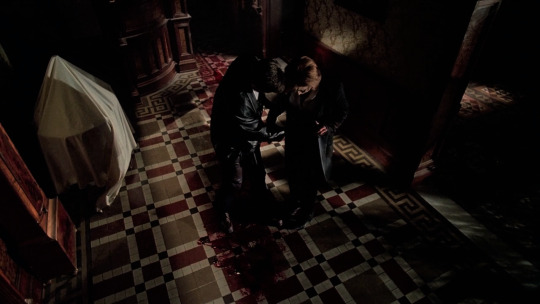
Lily Tomlin as Lyda and Ed Asner as Maurice were amazing. I loved their playfulness. That this was a horror-comedy instead of just a tragic, scary story.
Back at Mulder’s apartment
“I don’t deserve to be so happy.” - on the television in Mulder’s apartment at the end. How sad. But it describes him so perfectly this season. He doesn’t believe he deserves happiness. That he got to spend some time with Scully was wonderful, but now he’s back in his lonely apartment wishing she was still there, but not thinking it should ever happen. He knows what makes him happy, sharing and spending time with Scully, but she has her own “normal” life that he can never be a part of, that he doesn’t DESERVE to be a part of no matter how desperately he craves it.
When she shows up, he’s delighted. That she wants to be there with him, enjoys spending time doing WHATEVER, even if she’s scared, or refuses to believe. She enjoys their connection just as much as him. She views him as an important person in her life, just as much as her family. He agrees with Scully that it didn’t happen, doesn’t push her on her stubbornness to not believe, because he’s just happy she’s here. He chooses the opposite of loneliness.
Their acknowledgement of the fears that they have. Mulder’s on being selfish, and Scully’s on her reasons for working with him. I love that they mention these things rather than the ones that are actually true.
They do some heavy gazing at each other when talking about their vulnerabilities. 😍
I love how bashful they are when giving each other presents. It’s so cute!
Scully loves presents. I just love that tidbit about her. I don’t think she’s materialistic, the present could be anything. She just loves that someone cares enough about her to get her something meaningful, she loves the anticipation of unwrapping and seeing what it is.
After they opened their gifts, I think Scully invited Mulder to her mom’s house. Knowing he has nowhere to be, no one to spend it with. I just can’t see her choosing to leave him alone, and she WANTS to be with him. WANTS to live a life where they are together for holidays and significant events, not just because of work.
#xfiles#x-files#x-files rewatch#x files rewatch#msr#msrheadcanon#mulder and scully#fox mulder#dana scully#season 6#top 10 episodes
144 notes
·
View notes
Text
For young men (Part 1)
In my latest lockdown induced depressive episode I have been meeting some new people online. They are all young, male, mostly heterosexual, very nice and extremely considerate. However, they also are often afraid becoming a burden, insecure in their appearance or social skills, and often struggling with mental health. Given this, they are also usually extremely afraid of never finding themselves having sex or getting into a meaningful relationship in the late stage neoliberal capitalist dystopia we find ourselves in. To be honest I didn’t understand them at first, especially their obsession with sex. But the more I am thinking about it, the more I realize that we are united in the same dynamic of seeing sex or love as magic verfication of... What?
Growing up, I used hookups as a way to prove to myself that I am worth something. I thought that my value was defined by men’s desire. I originally in writing this wanted to show my perspective from the other side of the same coin, but after realizing how much of an undertaking that would be, I decided to start with the two most common answers from men used as justification to why they think they won’t get laid. These are things I find will help these kinds of people out, but as a great thinker once said...
“I can’t mom you through this one, boys. You are on your own.” - Contrapoints
(I link songs I like through out btw, the underlined text are links you can click on)
Foreword: Social factors
The average age of first intercourse has been rising in the US. Teenagers have less sex than ever before. These changes will affect you. In teen movies and shows charakters often experiment with sexuality before the age of 18. Everything else is played as an abnormality. If we compare ourselves to this misrepresentation of teenage sexuality, of course we seem like the losers.
“The proportion of young people who have had sexual intercourse increases rapidly as they age through adolescence”. It’s very likely, at least from my view, that you are just going to grow out of the awkward zone of wanting intimacy but not getting it. Just like you grew out of other things, such as bad musical taste or that one gaudy outfit. Don’t stress over this one specifically either.
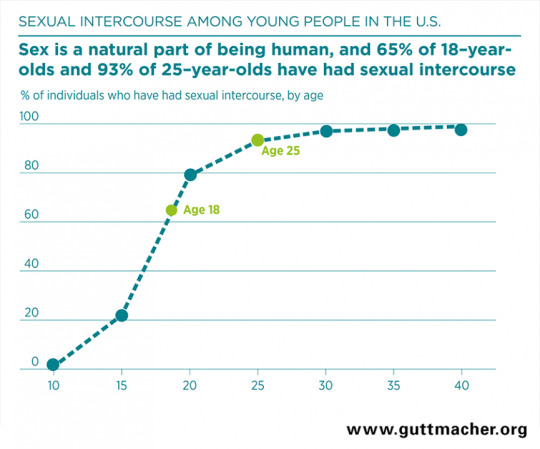
Adolescence is weird for all of us. Even if your first encounter is after college, let’s be real here: having such a good thing in your own place without your parents looming or having to share your room with a roommate you barely know is so much better anyway.
The Ugly fuck too
A common answer to my question why they think that they will never have sex is that they are “unattractive”. The implication being, that sex is the prize for looking a certain way.
But is it? We are so used to the perfect, porn-ready bodies in the media that we forget that the Ugly fuck too. We never see the foldes of fat and skin, never see acne warriors or moles, never see people who actually look like us.
In the movie “The Parasite”, there is a scene where the husband of Gook Moon-gwang, the former housekeeper, is implied to have sex. (the clip, starts at 3:00) It gave me weird feelings of discomfort, as the illusion so stereotypically found on the silver screen was not present. These two characters are not pretty. They look old. She is fat and he is a balding skeleton. They are not special, and that’s okay.
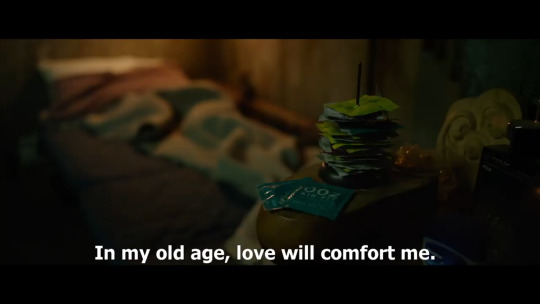
Being fuckable does not equal beauty. Being fuckable does not equal beauty. It was a terrifying thought initially for someone like me who defined their value over beauty & their beauty as being fuckable. It might also be a scary thought for someone who doesn’t think that they deserve love and intimacy because of their looks. I promise you that you still deserve love! Sex did not cure my problems with my appearance, or the fact that I based my self-esteem on the way I look. It will not make you feel normal. It will not make you feel better, prove your worth or even give you more self esteem in the long term beyond the initial rush of dopamine. It is not a caravan to fulfillment.
Beauty is a concept that is based on exclusion. Allow yourself to feel the pain of being excluded, of not reaching the impossible beauty standards and the disadvantages that come with it. Allow yourself to feel the fear of not being “man enough” and be happy in spite of it.
“Patriarchal masculinity teaches us to control our pain, but it can block us from experiencing the grief that is part of a full life. Chasing pleasure and controlling pain is patriarchal. Opening ourselves up to joy and grief is to be fully human.”
”Those of us in that skinny nerd category are especially prone to thinking that we aren’t “man enough.” [..] But the more I talked to men, the more convinced I became that almost all men at some point in their lives don’t feel man enough. Even the men I thought were the “real men” were scared.
That’s not surprising. Masculinity in patriarchy—that is, masculinity in a system of institutionalized male dominance—trains men to be competitive, in pursuit of conquest, which leads to routine confrontation, with the goal of always being in control of oneself and others. But no matter how intensely competitive one is, no matter how complete the conquest, no matter how many successful confrontations, and no matter how much one stays in control—men are haunted by the fear that they aren’t man enough, that they can never stop proving their masculinity.” - Robert Jensen
Stop comparing your appearance to other men’s. Start talking and bonding with them over your undoubtably shared insecurities rooted in society’s relentless toxic masculinity. Unlearning the things you’ve been indoctrinated into since conception is damn hard. I am still in the middle of it personally, but I promise you it is worth it. It will improve not only your relationships with other men, but also with yourself and that one girl you’re pining after.
There are a ton of resources targeted at women about self acceptance, but not many for men. Robert Jenson comes from a tradition of critical men’s groups. Even though I don’t agree with him on everything, he manages to scare most men (especially the kind I mentioned in the first paragraph) to their core, but also improves their lives drastically with his kindness and radical ideas. I implore you to look him up, and try your best to keep an open mind.

“A person who functions normally in a sick society is themselve sick.”
The other most common answer to the initial question was “being socially maladjusted”, implying that sex is something you earn by behaving a certain way. It is ingrained in the way we talk about love. “Deserving love” is the best example. Neither love nor sex is a product of work. Love and intimacy are a lot like sleep. It is a slow but unconscious process. You slowly work into it, with no idea of what comes next, and then, after an agonizingly long moment, you’re there. The fall is not often expected or easy, is always exhilarating, but never the product of conformity to anything except comfort with who you are.
I do acknowledge that social settings can be weird, existentially unsettling, and full of unseen complexities. This is especially true if you are neurodivergent and / or struggling with mental health. Being neurodivergent or struggling with mental health goes against the impossible, hegemonically masculine standard of always being in controll. It’s a common cause behind feelings of emasculation. Disregard that feeling, and remember that you deserve love, no matter how manly you are or are not, no matter how you behave.
Learning social settings are lot like learning to skate. In the beginning you will be covered in bruises, but with enough effort, you will be better at it. The chance of mistakes will get lower, but never zero. You will always have awkward situations, but that doesn’t mean that you are bad at them. It just means that you have room to improve still. Maybe consider getting lessons or joining a skate crew.
We tend to hyperfocus on the accidents. Think about how many nice conversations you had over the internet, text or otherwise. I ask you to value them. Value these positive experiences, value your friendships and acquaintances, value the people supporting you, online and offline. We tend to hyperfocus on meaningfull longterm friendships, just like we hyperfocus on love. Value your social enviroment, value someone who just made you feel ok for a moment. You are socially adapted, because you have a social enviroment you feel comfortable in, where you have relationships with people. The depth of a relationship is not messured by time, nor by physical touch. Being mindful of your feelings for the people around you can make you realize that you are less alone than you thought.
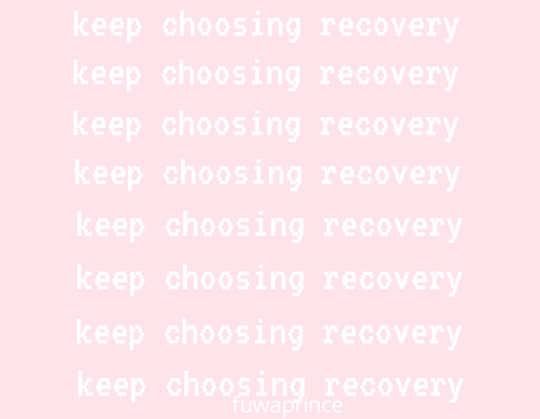
Some Tips
If you want to make friends additionally to that, here are some tips from someone, who is bad at social clues:
Join a group with a common interest or struggle: Book clubs, activist groups, selfhelp groups, they are great settings to meet new people and you already have a topic to talk about :)
If you feel save about it: Being open about your issues can help other people adapt to you and understand you better - especially in early on in relationships.
People sitting at the bar or smoking outside are generally more open for conversation
Don’t be afraid of getting rejected: They don’t reject you, when they reject a conversation with you. The reasons people don’t want to talk to you is very diverse. Stay respectful and polite.
Don’t expect to much: No one owes you a long conversation. A smalltalk is perfectly fine.
Learn to make compliments casually and learn to compliments that aren’t based on appearance.
Find a common ground (politically, a interest ect.) and talk about it
Take a improv class, seriously TAKE A IMPROV CLASS! (there are online ones, and sometimes it’s even free)
Here are some youtube videos by Anna Akana with more tips. (1) conversations, (2) how to be a better friend, (3) overthinking
Here are is a piece about being bad at relationship I liked.
Footnote: Trophies and muses
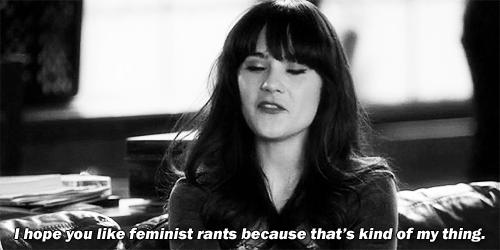
“We do not want to do the work of helping you to believe in your humanity. We cannot do it anymore. We have always tried. We have been repaid with systematic exploitation and systematic abuse. You are going to have to do this yourselves from now on and you know it.” - Andrea Dowkin
Behind the whole obsession with sex is often a distorted perception of women. Just remind yourself that women are human? Access to female bodies is not a human right. We are not trophies to push your ego. We are not there to inspire you or heal you. We are humans with agency. We desire love and being loved, just like everyone else.
I am tired, but I believe in your humanity...
xoxo,
aestheticritique
3 notes
·
View notes
Text
Lover Album Review
After listening to Taylor Swift’s 18-track album all the way through, my mind is blown. I grew up with Taylor’s music, as I first heard “Fearless” when I was 12 years old and have been an avid listener ever since. I just moved into my first apartment in Minneapolis, and I am so pleased that “Lover” can be the soundtrack to the beginning of the rest of my life.
“I Forgot That You Existed” is a banger for a first track. This song emulates a different emotion than we have heard from Taylor before. The upbeat background and snaps create a foundation of optimism, goofiness, and sheer “indifference”. The lyrics are words that anybody can relate to - who hasn’t experienced that blissful feeling when you recognize that you haven’t thought of that dreaded person who shall not be named for days, or even weeks? I was instantly pulled in with this opener.
“Cruel Summer” made me fall in love even more. The beat immediately made me feel like an August night of sitting in the back of an Uber with my friends on a Friday night, windows rolled down and hair going crazy. With this track, we get our first “blue” used in the album. If you’ve listened, you know that the word “blue” appears all over the place. Taylor exemplifies the poetess in her with lines like, “Devils roll the dice, angels roll their eyes, and if I bleed you’ll be the last to know.”
“Lover”...what can I even say? Not much - this is first dance wedding reception material. This gives me such flashbacks to some of Taylor’s older country-esque songs, with bright-eyed excitement. I get the same feeling here as I do when I listen to “Enchanted” or “Hey Stephen”. However, in contrast to those songs, here she is taking control and stands in a pool of her own confidence as she boldly professes that she has grown and made strides from her days of hopelessly pining for men who weren’t really worth her time.
“The Man”. Okay. Thank you so much for this, Taylor. Made me think of “If I Were a Boy” by Beyonce. This is infused with the feeling of being “tired and angry” like “somebody should be”, which is how Halsey describes similar feelings of being bothered how the lowly boys of this world seem to get whatever the heck they want. You really would be the man, Taylor. Think, for real, as she’s even said in interviews: if she were a man writing songs about even the shortest of flings, that would never be considered taboo and worthy of shaming. This is made evident by the thousands of male singer-songwriters who do just that and are widely accepted.
“The Archer” gave me “Red” album vibes, but that’s just me. “I hate my reflection for years and years...” really got me. From the very beginning of this song, the underlying line grows steadily. It almost feels like one of those never-ending videos where the tone appears to be increasing but never really does...gave me a sense of infinity. Very lush, injected with an emotional pen as she recalls different perspectives from different lovers and relationships.
“I Think He Knows” made me want to DANCE. And I did. A lot. The beat is almost hip-hop club-ish with the bass. It seemed like such an interesting song in contrast to “I Know Places”, from “1989″, which has a haunting sound and alludes to the idea that it’s hard for Taylor to ever feel like she has privacy with her private life. With this song, she isn’t focused on the people looking in at her life, but instead she delves into that private relationship. It makes me feel like she is caring less and less about what people see and what people know. She’s just LIVING her life.
And now, we have reached my favorite song of the album. Thanks for this one, Taylor. Seriously. “Miss Americana and the Heartbreak Prince” doesn’t even sound like any “type” of Taylor we’ve heard before. With the very beginning notes, I called it that I would cry by the end of this. The first verse immediately made me picture the “You Belong With Me” music video with the band uniform and prom dress. Taylor portrays two different sides of a coin in that video, and I feel a bit of that in this song. I really hope she does a music video of this song. I have always loved her more haunting melodies, particularly in the “Red” album (or in “Dancing With Our Hands Tied” - the most underrated song on "reputation”), but this took it to an entirely new level. I am OBSESSED.
“Paper Rings” is so playful, and a great mental break after processing the absurd depth in the previous song. Gave me “Stay, Stay, Stay” vibes. She sound so jovial and happy in this song, and I am so glad to hear her this way.
“Cornelia Street” is one of the fully Taylor Swift-composed songs on the album. This type of song I see myself rocking out to as I power walk down the street in autumn. In the lyrics, she talks about how losing this love would be devastating to the point of taking eternity to heal from. It is a familiar feeling, when you are in so deep with someone who you feel has become a part of you, impermeably and forever.
“Death By a Thousand Cuts” starts off by explaining just what she means. “Saying goodbye is death by a thousand cuts...” which is an interesting line to hear right after “Cornelia Street”, which invests in the narrative that saying goodbye would be an impossible feat after experiencing connection this strong. The instruments in this song are layered (clear guitar at the beginning with shuffling beats that come in and even something that sounds like a harpsichord??) and even though the message is a painful one, this baroque-poppy feel makes me want to DANCE MORE. But maybe with a lot of moves that make it look like I am in excruciating pain lol.
“London Boy”’s beat is fire flame. It’s a give-in that this song is about Joe Alwyn and as someone who has seen “The Favourite”, I can attest to the dimples and the accent. It’s clear her relationship is not only a a deep love, but also lots of fun, adventure, stepping outside her comfort zone, and recognizing that she can find home in someone who doesn’t live in her own backyard (*ahem* “White Horse”).
“Soon You’ll Get Better” (feat. Dixie Chicks) is simply beautiful. Reminiscent of her country days, as well. Reminds me of “Never Grow Up”. Since the speculation is that this song is about her mother, I find it poignant and very “Taylor” that it’s track 12. “The Best Day” is also track 12 on “Fearless” and was always one of my favorites. Underneath the main message of trying to find comfort in a super tough and scary time, I find that Taylor is enunciating the idea that she is growing up and things will change in her relationship to her parents no matter what. That’s just the way of life. Very moving.
“False God” begins with a sexy little saxophone riff. Shortly after, we get to hear that poetic line she teased on her Spotify playlist: “And I can’t talk to you when you’re like this...staring out the window like I’m not your favorite town - I’m New York City!” The message with this song gives me a “bigger picture” sense. Even though she is making references to heaven and hell within interactions with her lover, I can also view the “times like this” that “they warned us about” as the times we are living in now: terrifying and unclear with a leader who professes division and tearing down much more than love and building up.
“You Need To Calm Down” is by far the single that I listened to the most before the album dropped. As a queer woman who “passes” as a “straight” cis woman and who took a very long time to admit to herself and others the truth, this song greatly boosted my confidence in Taylor as she opens up about where she stands, loudly and proudly. And that beat is so VIBRANT and fun.
At the start of “Afterglow”, we get yet ANOTHER use of “blue”. (There are lots that I didn’t mention, but it just is so prominent here.) This is a beautiful, lush, apology song in which Taylor unveils how deeply she wants her lover to stay despite her shortcomings and miscommunications. I felt this one hard and wish I could play it for a lot of my ex-best friends.
“ME!” (feat. Brendon Urie of Panic! At The Disco) is colorful, glorious, confident, cheerful, and is something that I could see being played at a pep rally. The message is clear: being yourself will ultimately win you every prize that is yours to win. Whether that be a lover or whatever your heart desires!! This is a truth I have come to realize recently. It’s a hard, treacherous lesson, and I feel that Taylor is showing that she’s finally finding out what it means to be truly herself with this tune.
“It’s Nice To Have A Friend” is the cutest song Taylor has ever written and recorded, by far. I think I hear steel pan in the background, adding to the layered sound of playfulness. That trumpet in the middle is so triumphant and an interesting addition to the dynamic! It feels very innocent and loving, maybe she wrote this with her cats in mind :)
“Daylight” is a gorgeous closing track. As this wraps up the album, it is quite clear that Taylor feels like she can breathe more deeply now that she has met, known, and loved her lover. It appears that everything has changed, and she can see much more clearly. This song made me think of “Clean” from “1989″, due to the notion that she is leaving the darkness and fogginess and entering a world where she feels fresh and sees everything clearly. Her lover is obviously a wonderful match for her spunky, stoked, sensitive, Sagittarius self. “You are what you love.” What a precious way to close my favorite new album.
Overall - Taylor’s “Lover” incorporates many familiar Taylor sounds while also introducing lots of new things we’ve never heard. From the lush synths in “Cruel Summer” to Cautious Clay’s influence in “London Boy”, it is clear that Taylor has crafted something that signifies a new era for her. As she turns 30 at the end of this year, she has seven studio albums to be extremely proud of. Thank you, Taylor, for being such a strong beam of light as I navigated high school hallways, college parties, and the ups and downs of falling in love.
#taylor swift#lover#swifties#lover album#cats#fearless#lovers lounge#new york#west village#review#album review#lover album review#dixie chicks#brendon urie#music#music review#taylor#swift#1989#red#reputation#speak now
2 notes
·
View notes
Text
Archetype’s Great Choose Your Own Villain Adventure
You’ve finally done it — you have written an amazing hero.
She has all of your own best traits: kindness, bravery, stubbornness, cute glasses. You don’t know if you want to be her or marry her. Readers will see themselves in her and dress to match her style. Critics will fear her. And best of all, she is wholly, undeniably, ready carrying the weight of your complex plot.
But now you need to craft your antagonist. And this fellow really needs to measure up.
Don’t worry, though—in this post, we’ll break down some of the many tools you can turn to when creating someone to foil your protagonist’s plans.
Just how bad is bad?
A. An Evil Villain? This villain has no morals, or if she does, she buried them deep down a long time ago. She’ll sacrifice her family, friends, and everyone’s free will for eternal beauty, unlimited power, or world domination. Think the Evil Queen from Snow White or Sauron from Lord of the Rings.
B. A Disgruntled Opponent? This villain's had a lifelong streak of bad luck. His parents were killed by someone eerily similar to the hero, global warming flooded his lair last week, and the hero spilled coffee on his pants while saving a cat from a tree this morning. Really, all he wants is a nap—if he has to chain up a few good guys for some peace and quiet, it’s no more than he deserves. Think Luke Castellan from the Percy Jackson series.
C. A Good Person with Questionable Goals? Rational people presented with the same situation won’t always agree, because at the end of the day all people, even equally good people, have different values and morals. If your hero wants to flip the switch and save five people on the train track but your antagonist doesn’t think the one man on the other side should die, you’re probably going for this dynamic. This is Captain America: Civil War through and through.
Just how serious are they?
A. Funny and exaggerated? A villain like this is there to put a wrench in your hero’s plans (and probably provide lots of comic relief), but not seriously threaten anyone with bodily harm. They may think they’re irredeemable and say they couldn’t care less about another person, but they’re either confused or wildly incompetent. Think about it: nobody believes Dr. Doofenshmirtz is going to do anything more than mildly inconvenience them.
B. Menacing and exaggerated? Your villain shoots lasers out of their eyes. Their knuckles are embedded with knives. One whiff of their breath causes paralysis. One word from their mouth has civilians leaping off cliffs. They wear only black, and their evil lair says “Evil Lair” on the front door. They also probably have a lot of henchpeople. Basically, everything about them screams Bad Guy, to the point where it’s definitely not realistic. A good example is Gru from Despicable Me.
C. Spookily realistic to the point of goosebumps? The world is a scary place, and sometimes it’s important to represent that in your work. Antagonists can be made all the worse by the fact that they’re just regular people doing reprehensible, unforgivable things. Think Frollo in Hunchback of Notre Dame or Mother Gothel in Tangled—attempted sexual assault and child abuse are no joke.
Was your antagonist …
A. Brought into being because of the actions of your hero? Some villains might have been a cashier down at the 7-Eleven if it wasn’t for that chance encounter with your hero all those years ago. Now, though, they’ve sworn to get revenge for their slighted pride—stupid heroes and their ego, right? Buddy Pine, AKA Syndrome from The Incredibles, is a great example of this.
B. Morally transformed by a dramatic life event? Sometimes good people do bad things when they’re under a lot of stress, especially if they’ve been traumatized. Have they been forced to make an impossible choice with consequences that haunt them? Tortured because they were good? Watched their family die? Depending on who you ask, the Punisher falls into this category.
C. Doing the wrong thing for the right reasons? Sure, your antagonist stole the diamonds and fired a warning shot at the reception outside the gala, but the real baddie is holding her wife hostage at home. Your hero would have done the same thing—right? Think the origin story of the Hook-Handed Man from A Series of Unfortunate Events, or Killmonger from Black Panther.
On a related note, does your antagonist …
A. Have a history with your hero? In many cases, the protagonist and the antagonist go way back. Maybe they were once friends (this has tons of potential—do they know each other’s weaknesses? Have certain pet peeves they’ve sworn never to exploit?), or maybe they’ve just fought about this issue many times before. Have they dated? Were their parents friends? Think Catra from Netflix’s She-Ra reboot.
B. Fear your hero’s reputation? This antagonist knows your hero is coming, and as much as he tries to deny it, he knows he’s not ready. Maybe there’s a prophecy. Maybe the hero just has a really good PR team. Either way, the villain is going to try to shoot first—and if he misses, he probably won’t get another chance. Voldemort.
C. Have no interest in your hero whatsoever — the hero wants to stop them, but they don’t think the hero is a threat. There’s always a chance, though, that your villain doesn’t even think your hero is worth the time of day. Maybe they’ve heard of him, maybe they haven’t—what does it matter when they’re not going to be stopped either way? This villain feels toward your hero what Irene Adler feels toward Sherlock Holmes—totally unbothered, and maybe occasionally amused.
Other fun questions to ask:
Do they have a sidekick? Why does that sidekick serve them?
Do they have an accent? Is it real or for effect?
Do they have powers? Do they wish they did?
Do they have a color scheme?
Does something dramatic happen every time they come into the room (lightning strikes, mirrors crack, a woman screams, etc.)
If left in the room with a wailing baby, how would they handle it?
If left in the room with a barking dog, would they handle that differently?
What are they afraid of?
Things to be cautious of:
Excusing appalling behavior via redemption.
Some things are just inexcusable—or at least, they should be, if we don’t want to contribute to the negative energy out there in the world. So ask yourself … has your antagonist beaten their wife? Sexually abused someone? Harmed children? Acted extremely racist? Gleefully supported fascism? Brutally killed their own father in cold blood?
If you answered yes to any of these questions, think really carefully before planning a redemption arc.
If you want your villain to turn to the good side by the end, they can still do villainous things. They can lie, they can betray those who are close to them, they can plot world domination, they can even kill. But there are lines you probably can’t let them cross if you don’t want them to be hated by your other characters for all eternity. Let’s put it this way—Aladdin, whose worst crime is stealing bread, is redeemable. Loki, who was supposedly being mind-controlled during the first Avengers film, is questionable. Hannibal Lecter, who eats people, is a lost cause.
A really, really phenomenal example of a villain doing sometimes-okay things and yet not being excused for his misdeeds is Count Olaf from A Series of Unfortunate Events—both the books and the Netflix series. There are genuine, emotional reasons he’s a terrible person, and he even does halfway decent things every once in a while. And yet, he’s not forgiven by the characters or the narrative, and he’s treated as the villain he is until the bitter end. Actually, A Series of Unfortunate Events is great at this all around:
Charles: You have to understand, he had a very terrible childhood. Klaus: I understand. I’m having a very terrible childhood right now.
A less great example is Severus Snape from Harry Potter. When it’s revealed that he loved Lily and occasionally didn’t have it out for Harry by the very end of Deathly Hallows, it’s like the narrative wants us to forget about his bullying, bigotry, attempted genocide, child abuse, pet-murdering, deception, and every other foul thing he gets up to for thousands of pages.
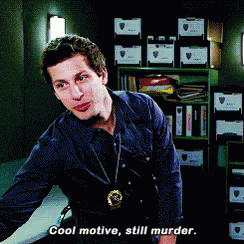
Queer coding. There’s this thing Disney does that you might be familiar with. Let’s pick a few examples and see if you can pinpoint it.
Simba vs. Scar
Hercules vs. Hades
John Smith vs. Governor Ratcliffe
Ariel vs. Ursula
That’s right—male villains tend to be more effeminate and delicate than their tough heroic counterparts, and female villains are hell-bent on corrupting sweet, innocent princesses. Even if the characters themselves aren’t meant to be read as gay—even if they don’t appear gay at all, aside from the coded traits—there’s a history of this being used to reinforce negative stereotypes.
That’s not to say that you can’t have gay villains—make everyone LGBT+, if you want. Goodness knows there are enough straight characters out there to last several lifetimes. But if only the villains are gay, and all the heroes are straight, you’re getting into the dangerous territory of suggesting that the traits that villains have are traits that only gay people have, and vice versa.
The same thing applies to race—if all your antagonists are black or Asian or Jewish or Romani and all your heroes are white, what does that say about how your readers should view good and evil? And if all your villains are disabled or mentally ill and your heroes are able-bodied, might you end up spreading the wrong message?
Writing diverse stories is amazing and so, so worth it! But it’s definitely going to take extra sensitivity and care—so make sure you’re fully committed, or you risk doing more harm than good in the end.
Questions? Concerns? Send us your thoughts at [email protected] or leave us a comment!
#archetypeonline#genre fiction#blog post#antagonists#short stories#young writers#science fiction#fantasy#bad guys#character development
9 notes
·
View notes
Note
We all know that Mulder is insecure but Do you think scully has some serious security issue around Mulder too when it comes to having a romantic relationship with him?
In a word, yes.
Scully almost certainly has avoidant attachment issues.
She’d been brought up as a navy brat, never settling in one place for too long; never being able to establish a secure base with those outside her immediate family. As a child, she learnt that those close to her would at some point be ripped away and so the pain of that probably taught her to keep a safe distance from others.
She confesses as much in season 5′s Christmas Carol.
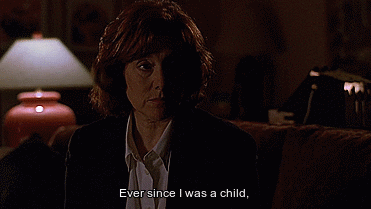
It isn’t just about how she would have repeatedly lost friendships and other significant relationships from moving around - it goes deeper than that. In season 7′s Orison, there is the poignant story Scully tells of how she realised that evil exists in the world when her Sunday School teacher was killed in his front yard. She was close to this man, and he was taken away too. She learnt very young that not just distance, but also death robs you of those you love.
Because she fears forming attachments to those outside of her immediate family, it places a far greater strain on the attachments she does allow for herself - namely the relationship she has with her father.
She idolises him and the romanticism of his naval career - he’s her hero. When re-watching Ghost in the Machine for my most recent analysis post, I noticed that when Scully was in bed, there was a book she had fallen asleep reading, and so I Googled it.
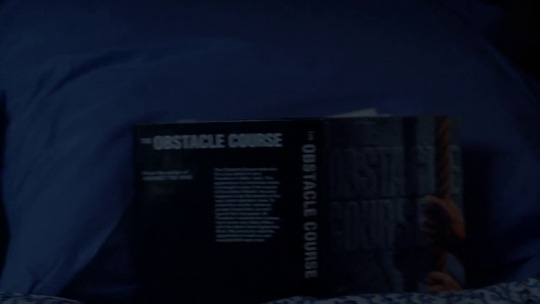
This book, “The Obstacle Course” by J.F. Freedman, is about a down and out boy who befriends a navy admiral who helps him to turn his life around by going to the Navy Academy. Hmm!
She really does live and breathe her father’s legacy - as she says herself in season 4′s Never Again…
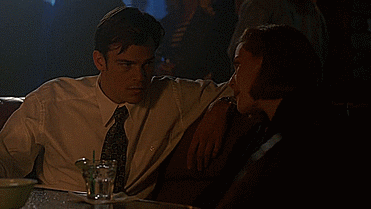
So in the absence of others, all her emotional needs were channelled into her relationship with her father. He became her entire world. He was incredibly proud of her becoming a doctor, and so when she jacked a medical career in, to join the FBI, she could never fully reconcile the crushing feeling she had disappointed the one person she desperately craved the approval of.
She says to Ed Jerse in Never Again, that she craves the approval of controlling, authority figures because they are proxies of her father. This need has haunted her, because she never got the approval she needed from him when joining the FBI. It’s no wonder she ended up in several relationships with older, authoritative men, from whom she also sought this same approval. As she admits Ed and to herself - her life has run in a circle of constantly seeking out and then rebelling against “other fathers”.
First (that we know of) was Daniel Waterston - one of her teachers in medical school. She has an affair with him that, interestingly, she ended once she decided to join the FBI and he voiced his vehement disapproval, just like her father did.
The next relationship she finds herself in is with her FBI instructor. Jack Willis. Another older man in a position of authority; a teacher who she could gain the approval of to fuel this need for validation and fatherly love.
It’s worth pointing out that the fact these men are her teachers is quite interesting too. A “teacher” is an embodiment of childhood authority, a figure that we are actively encouraged to seek the approval of - they are much like surrogate parents - surrogate fathers.
Never Again is an interesting episode, because it reveals a lot about how Scully might view Mulder. Does she see him as another controlling, authority figure in her life? I’d say… in the end… no. Haha… wait, wait!
We have to remember that Never Again occurs immediately after Leonard Betts and right before Memento Mori. It’s not known if she had her cancer diagnosis at this point, but I’d say that she is going through a huge emotional crisis in Never Again. I’d say, at the very least, she suspects her illness and is in the process of being tested. Whether she has the confirmed diagnosis or not, she is having to face the possibility she may have a terminal illness and so she is in the process of examining herself, her life, and her priorities.
She’s noticed this pattern in her life, and seen the damage it has done to her, and is now seemingly resentful - her time to rebel has come around again. She feels her life is standing still, and is rebelling against the figure she feels is, at least in part, responsible for that - Mulder.
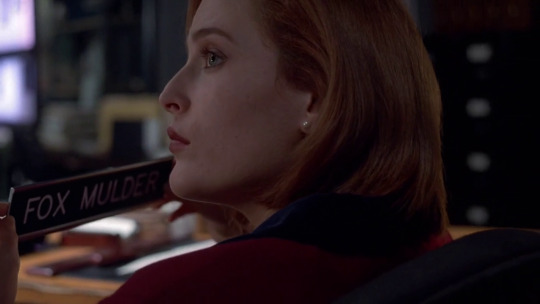
During Never Again, she is examining her relationship with Mulder and finding herself irritated to the extreme when she observes any overlap in Mulder’s behaviour with the “other fathers” she later mentions to Ed. The controlling, authority figure who she desperately seeks the attention and approval of.
There are definitely echos of that, she has moments of needing Mulder’s approval, and there are definitely times when she is threatened by women who take his attention away from her. But I don’t think that’s how she sees Mulder overall. If she did, then why would she stick around? If Mulder was simply another proxy for her father, then she would do what she has always done when coming to this conclusion about the men in her life - which is end the relationship. Like she did with both Daniel and Jack.
But she doesn’t… why?
If Scully was ever going to decide that her relationship with Mulder was actually toxic and damaging to her and so leave him, this would have been it - facing terminal illness and realising he’s a controlling asshole. But she doesn’t… so she must come to some other conclusion regarding the tension between her and Mulder.
Which, personally, I think is something she’s probably felt for some time, but is only forced to acknowledge it when Diana Fowley shows up to - once again - take Mulder’s attention away from her. But this time it’s different - this time I think she can no longer avoid the fact that this tension between them is caused by the fact that she is in love with Mulder.
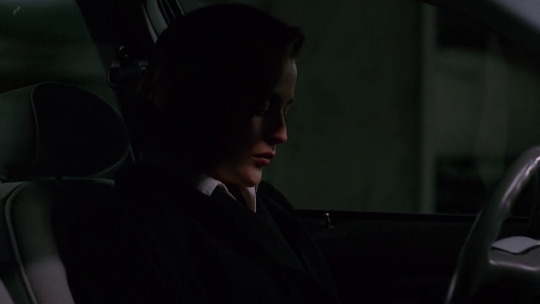
So, with all of this, it’s clear to see that Scully has a lot of personal demons which are going to be haunting her surrounding any kind of romantic relationship.
She trusts Mulder like no other and he has become a huge focus in her life. The idea of changing the nature of that relationship is going to be incredibly scary for her. Not only because she’s realised her feelings for him are not based on a need for a father surrogate, but something deeper that she’s never had with a man before, but also because she has this deeply ingrained belief that getting closer to him means she will lose him. That it won’t last. That, sooner or later, distance or death will take him from her. Risking that kind of pain is terrifying.
The tragedy is that pretty soon after she does initiate a romantic relationship with him (assuming that’s what happens off screen in All Things) she does lose him, first through distance in their separation, and then to death. Her worst nightmare come to life.
So Scully never gets closer, never overstep the mark - Mulder has to be the one to make the first move (Fight the Future). Occasionally letting it slip that she is attracted to him is about all she ever allows herself.

Even after they are together, you can see some of this stuff is still there for Scully. Fast forward all the way to I Want To Believe and you can see some of her defences still at work. She tries to end her relationship with Mulder before getting hurt - she’s protecting herself from the pain of losing him to his re-awakened passion for hunting the paranormal - by leaving him first.
So yes, in my opinion, Scully has a lot of security issues around having a relationship with Mulder. I hope that answers your question, Anon!
I would also like to add, that this is all my interpretation of things that may well be totally off the mark. I had been concerned about this previously, but it was brought to my attention more recently from some feedback I got, that a lot of what I say I might inadvertently present as some great revelation, but it’s actually all old hat that most people know already. So, apologies if it comes across like that. I am just putting it together in the way I know how, and I hope you all understand that this is only my interpretation of things, and that many others may have laid this out already and perhaps far more coherently than I. I don’t want this to seem like I claim any of my thoughts on the show as fact or canon.
Cheers.
241 notes
·
View notes
Text
Tacoma
It's difficult to separate a work from its creators, despite the intention of the work itself. While Tacoma isn't a direct sequel to Gone Home, Fullbright's previous release and the breakthrough into the mainstream that these character-oriented experiences have become, it certainly follows in the footsteps of the groundwork that Gone Home has laid in its wake. Where many games would opt for a setting that feels believable enough to be a real place but “gamey” enough to occupy and traverse, Tacoma and other games in this genre trade in a deliberately slow, measured pacing that takes pride in the realism of their settings. Where many games reference and idealize settings for the effect of creating and enjoyable level, Walking Simulators (as much as I hate that term, it isn't entirely inaccurate at this point) trade in environments that are realistic to truly inhabit.
In that regard, Tacoma is a resounding success. By daring to break away from the willfully indulgent nostalgia that many of these games have occupied, whether it's through a time period or a well-established setting like a national forest or a haunted house, Tacoma steps outside of those boundaries in a way that forces the creative boundaries outward. Where the player could before assume the general state of the world, Tacoma raises the challenge of creating an entirely new reality to inhabit, but one that has the same believability as an abandoned mid-90's mansion. There is a tactile, realistic feel to picking up and examining recorded VHS tapes of the X-Files that would be challenging to recreate in a setting that almost literally does not exist, but Tacoma grapples with that problem admirably.
The space station Tacoma, which operates as a glorified shipping and receiving factory, is an incredibly essential character in the game. As it isn't a simple real-world location gone creepy, it requires as much setup as the actual human characters. The player, a third-party contractor named Amy hired to board and investigate the Tacoma, is free to walk and poke around Tacoma as they gain access to new areas. Though only being a setting, it serves as a microcosm of the outside world; before you can begin your adventure proper, you're required to grab a special pair of AR augmentations and sign off on a user agreement which sounds actually pretty scary when you read it closely, though not unlike many of the EULAs we blindly agree to nowadays anyway (use of image in perpetuity across the universe? Really?). From there, the reality of the fiction that Tacoma places itself in becomes horribly real. There is a pervading sense of corporate ownership that runs through the game, hinting at the obsoletion of currency in favour of a system called “Loyalty,” which can be traded between various companies for less than desirable rates that aren't entirely clear to the person making the decision to convert. There are fictional holidays about the advancements (or stagnation, depending on how you view it) of the workforce, which the contractors of space stations take part in. Whether they actually enjoy the holiday or even understand it is played with, and many simply use it as a free day off. Fictional (and real) corporations are named and given histories, and even the technology that powers the station is given realistic uses and limits (try turning a stove or a treadmill on, go for it).
For all of that work, it would have been unfortunate for Tacoma to drop the ball on the human characters which act as the core of the experience. The most realistic space station in the world would be boring to explore if the humanity in the station didn't hold up its end of the bargain. (Mostly) Fortunately, Tacoma delivers the good on its human crew members. Despite being only a couple of hours long, Tacoma boasts six crew members to experience during the journey, and each with their own ambitions, problems, goals, and worries. The amount of characters who seem actually real seems like an odd thing to praise, but in the context of a short video game, it's not something that's seen very often. Fullbright explored plenty of options to bring these characters to life and they're all handled well.
One of the chief ways to explore and learn the characters are the AR recordings, which play out as coloured silhouettes that roam about the environment, almost like a stage play. As you watch these play back, you're presented with a timeline that informs you of how far along in a recording you are, which events of interest are happening, and the ability to scrub through the recording as you see fit. What first seems like a very basic twist on the audio log formula (the ability to manually track your position in a recording) quickly becomes much more complicated, as characters congregate and branch out during the recording. Being a real-time recording of the events of the station in a given area, the recording is not simply of a single character but of whoever was present in the zone during that recording. This leads to many instances of pausing and forwarding tracks to keep up with moving characters, navigating the environment to figure out who was standing where and when, and how to access the AR terminals the game presents.
Right, so another way the game presents characters is through a very indirect method, which is the AR terminals that everyone on board (including Amy herself) has access to. They open in front of characters like a digital book, and have area for email, web browsing, video calls and other computer-like interactions. Any time that a character is using his or her AR terminal during a recording, the player is free to poke around in it as well, though some interactions are locked off as corrupted or otherwise inaccessible. On top of the mostly passive AR recordings and the usual ability to poke and prod and twist and turn every item in the environment, the AR terminals act as a welcome addition to the usual formula of these games and give much needed context to certain characters. Like any media, sometimes there were characters who seemed to be acting entirely irrationally only for me to find well-earned justification in their email log or through a conversation with their partner or child. Adding a layer of context that isn't outright shown is a realistic way to add layers to characters. After all, how many times have you thought someone to be acting irrationally in real life, only to find out later that they were going through trauma or issues in their lives? The AR terminals are a layer of reality, despite being a digital item.
The conventions that Tacoma chooses to engage with and subvert do define a significant portion of my opinion of the game. Being the next entry in the genre from the creators who worked to popularize it, there's a certain notion of conventions being challenged and problems being addressed. With the popularity and advent of this genre, from Firewatch to SOMA to Layers of Fear, comes an expectation of improvement and expansion. Tacoma puts forth ideas that don't always pan out, though a lot of that does come down to individual opinion.
The prevalence of audio logs in the game seems like a very conscious design decision, rather than a creative freedom like Gone Home. Telling a story which has already happened is fascinating in its own right, not entirely disassociated from the strange voyeuristic tendencies that people might have, but because it allows a freedom to explore and inhabit an environment that was very lovingly crafted. While a game like Bioshock (which members of Fullbright have worked on) leans on tension to keep the player moving, games like Gone Home are fully propped up by their narratives and environments. In this case, Tacoma is full of very compelling people who participate in an event which seems equal parts terrifying and thrilling, guided by an AI whose intentions are not entirely clear (as is the case with so many AIs in fiction). Despite the joy of picking through drawers and bookstacks on the space station, I found myself something wishing that I could have inhabited a character who lived through the events of the space station. It speaks to the strength of the dual narrative style that Gone Home and Tacoma utilise that I want to experience both stories, though whether or not your story is the more interesting one is entirely a matter of personal opinion.
Similarly, the world around the Tacoma is so well-realised, even through snippets of emails and advertisements and AR terminals, that there's a part of me which wants to dive deeply into the universe outside of the airlock and find out who the tertiary characters and big players in the ecosystem are. Subtle hints like the faded American flag in a certain character's office or the constant reference to a competing company within the Tacoma stoke the fires of my interests so much that being a passive observer feels like a step back from what could have been. The art design is immaculate and the trail of breadcrumbs left for the player to follow through the station paint such a vivid world that I wish I could have either taken a step down, into the events of the Tacoma itself, or a step up, into a more wide-reaching political thriller.
Despite this, Tacoma succeeds whole-heartedly at what it does. It exposes an extremely believable world in microcosm, one that seems to respect all current avenues of political and social reality while presenting a very real picture of where it might go, and fills that opening with characters who feel motivated and clearly grounded without degenerating into two-dimensional caricatures of what a person in space might look or act like. As a follow-up to Gone Home, it smartly engages and subverts what it needs to by twisting the environmental storytelling model into an interactive and immersive space while ditching what isn't required, which is a faithful recreation of a time that's already passed us by. That's not to say that it diminishes what Gone Home accomplished, but it stands to prove what can be done when you look at a genre as a feeling and an idea, instead of a list of bullet points that need to be hit. I come away from Tacoma disappointed that its world isn't more immediately accessible, but very happy with the story it tells within the confines of its universe.

#review#reviews#video games#fullbright#tacoma#walking simulator#2017#sci-fi#pc#steam#xbox one#words#4 stars
3 notes
·
View notes
Text
Unreal Estate: 10 scary films with demonic residences and un-family-friendly locations
youtube
1. Nosferatu (1922).There's nothing like making the residential property sale of your life, only to discover that your desire customer is a member of the blood-sucking undead. This movie is remarkable since it was an unapproved adaptation of the book "Dracula" by Bram Stoker. Lately, improved copies of the original movie have been made easily accessible to the public. This movie presented the principle of vampires being significantly damaged and/or ruined by sunshine.2. The Amityville Scary (1979). idaho falls realtor Probably one of the most extreme situation of buyer's regret in a film to this day, "The Amityville Scary" is based on Jay Anson's story of the same name. An all-American family purchases a huge house with a huge great deal in a good community for a reduced, low price ... you recognize that there needs to be something wrong with the image. And there is. A whole lot wrong. Fortunately for the visitor, the mythological events asserted to be real in the book and the film have not been reported by the family members currently living in the house.3. Poltergeist (1982).The American Dream: the youngsters, the vehicle, your home ... wait ... Your house has a couple of problems. Malfunctioning circuitry - the living room television activates on its own. Uneven - the coffee container keeps relocating. Weed troubles - a tree outside aiming to order the youngsters and also hurl them right into a parallel dimension. And also having your house implode on you is always an additional indication that points aren't completely sound. You may want to pass on aiming to sell this.4. The Lost Boys (1987).A film that illustrates what's important about the expression, "area, area, location". When you're trying to find a location to elevate your 2 teenagers, perhaps "the murder resources of the world" shouldn't be your first consideration. That and all the damn vampires.5. The Haunting (1963).This is the 1963 variation and not the unwieldy 1999 remake. May maintain this in mind if you make a decision to check out a home with a dark past. A group of paranormal detectives locate that an old manor has more sinister pressures compared to mold and mildew and also termites and also loss of equity.6. The Tenant (1976).Roman Polanski plays a male that ends up being worried that his property owner as well as next-door neighbors are attempting to mold and mildew him into the previous renter to make sure that he will certainly commit self-destruction too. This film isn't a sparkling instance of landlord-tenant relations, yet it does generate a good creep variable to rental residential or commercial property investments.7. The Unwanted (1944).It's another instance of a fully furnished residence being bought at a suspiciously low cost. Certainly, the brand-new owner locates that there are some mythological squatters that make life ... hard. As in, make it tough to survive. Just like several other older movies, watch this as opposed to its remakes.8. Psycho (1960).Traumatizing shower enthusiasts for almost HALF A CENTURY, Psycho includes the brooding Bates' home that overlooks the Bates Motel. It would certainly be a much better investment if its proprietor wasn't directing his murderous mommy, but you can not anticipate every little thing. The genuine home is still readily available for viewing through tourbus at the Los Angeles Universal Studios.9. Arachnaphobia (1990).A medical professional removals his family members away from the large, negative city to end up combating huge, bad crawlers. It's just what you get when you discover an inexpensive home in a safe area: something constantly occurs to endanger your life. Timeless tale for those who are unsure of the requirement for a pest inspection prior to getting - huge South American awesome crawlers can obtain YOU.10. Warm Fuzz (2007).Not a scary motion picture per se, but still an incredibly violent movie highlighting that drowsy, well-to-do, neighborly communities with picturesque heritage houses CONSTANTLY have glitch with them, like secret cults murdering wayward villagers. A great action flick that tackles the pal police style as well as adds a swan or two.
0 notes